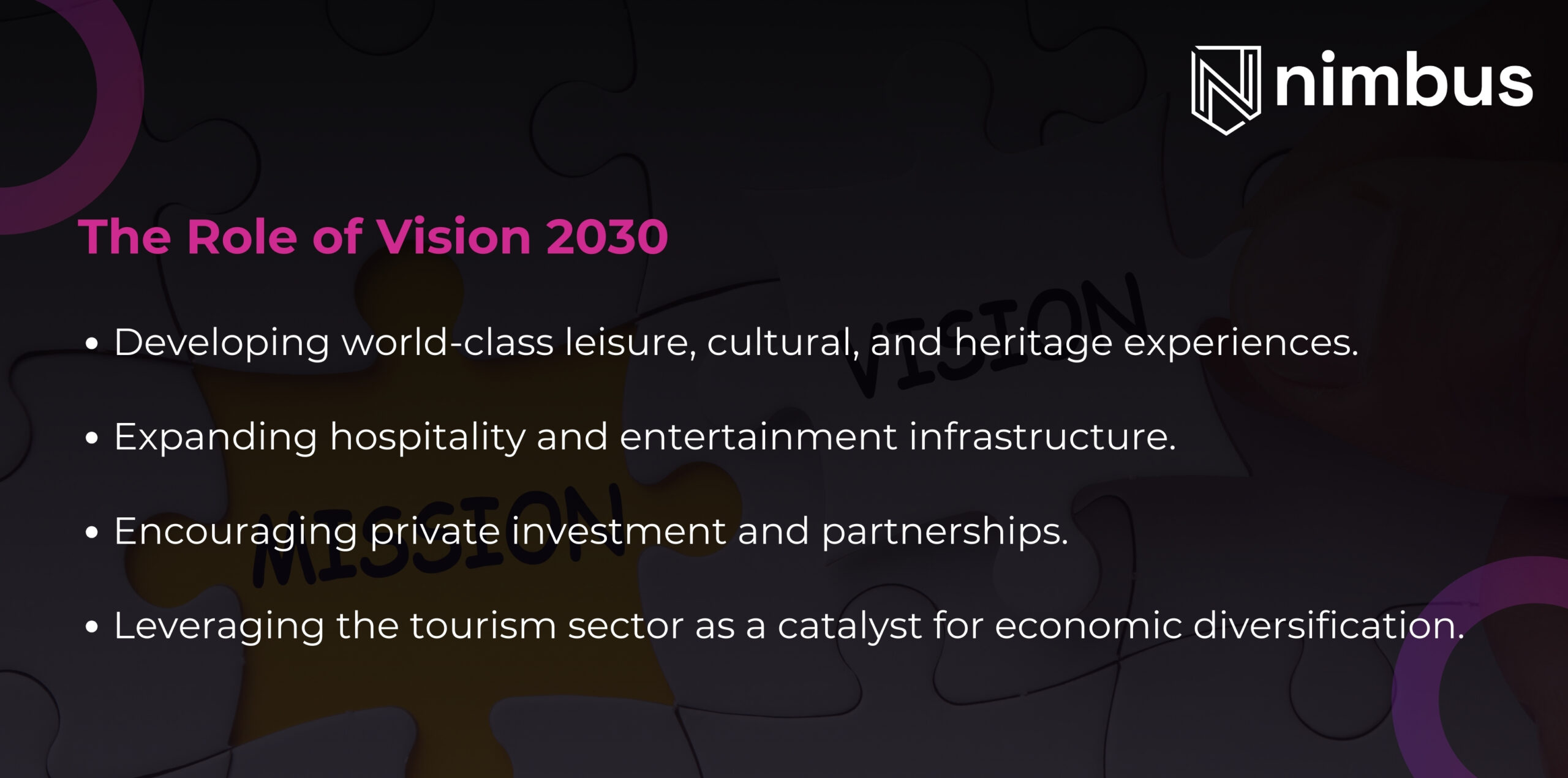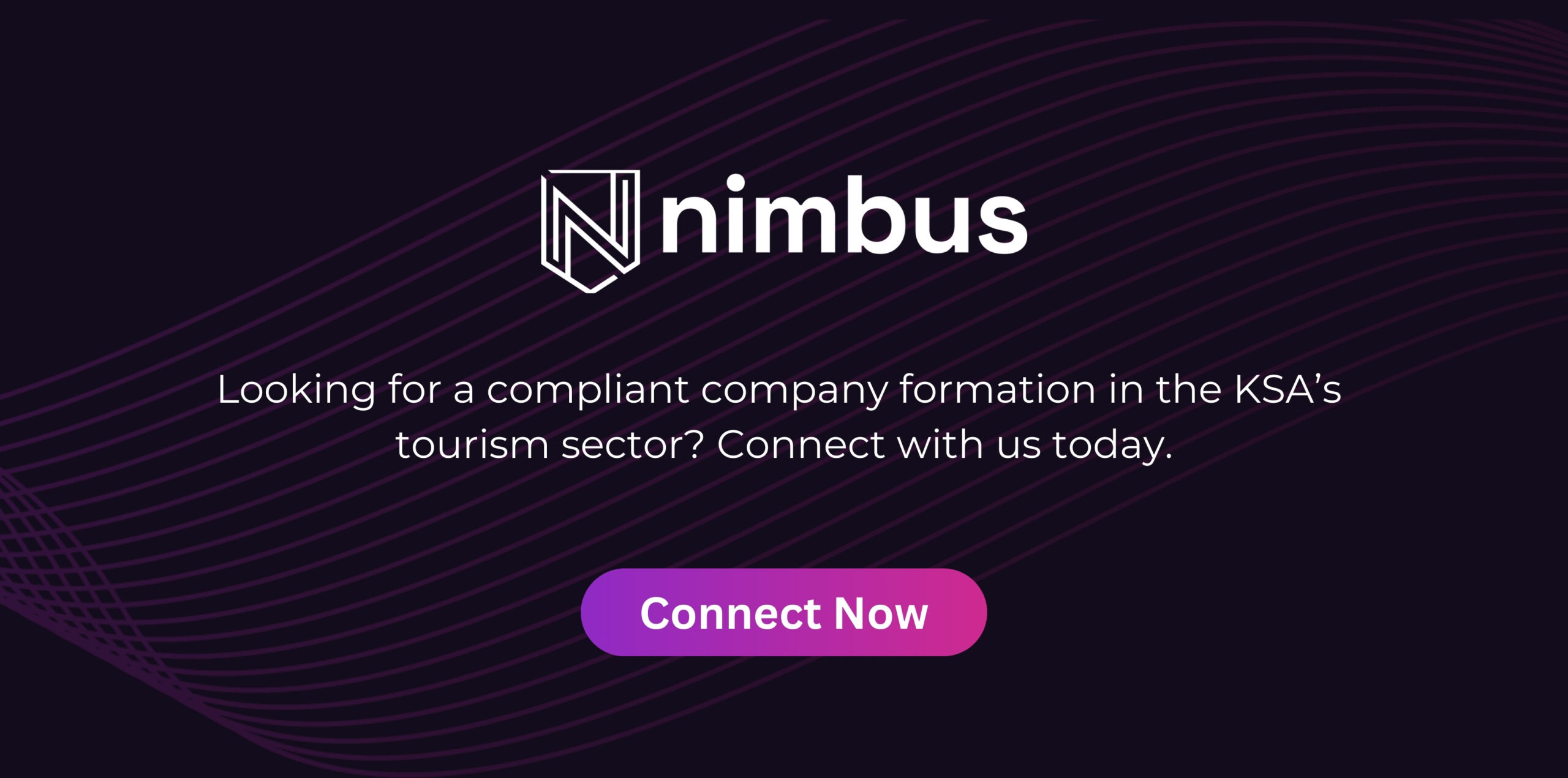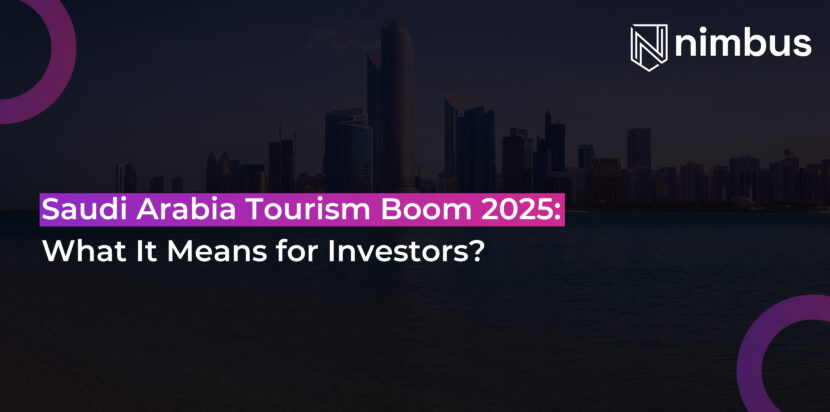Saudi Arabia is rapidly transforming into a global tourism powerhouse, and 2025 is shaping up to be a landmark year. According to the latest UN World Tourism Organization (UNWTO) World Tourism Barometer, the Kingdom led the world in international tourism spending growth during the first quarter of 2025 and ranked third globally in tourist arrival gains.
The data shows a significant percentage increase in international visitor numbers and spending compared to the same period in 2019. This performance clearly states the fact that Saudi Arabia is becoming a major magnet for travelers and investors alike.
Tourism Receipts and Visitor Spending
In Q1 2025, foreign visitors contributed SAR 49.4 billion to the KSA’s economy, marking a 10 percent increase from the first quarter of 2024. The travel account surplus also rose by 11.7 percent year-on-year. The surge in tourism spending reflects several strategic factors:
- The expansion of visa policies, including e-visas and streamlined entry processes.
- Investment in tourism infrastructure, including airports, transport, and hospitality facilities.
- The development of iconic giga-projects such as NEOM, AlUla, the Red Sea Project, and Sindalah.
Religious Tourism as a Core Driver
Religious tourism remains a cornerstone of the Kingdom’s tourism strategy. Mecca and Madinah continue to attract millions of pilgrims annually, with Mecca alone drawing 9.4 million visitors in 2022.
This sector provides a stable foundation for the tourism economy, with consistent demand throughout the year, and creates ancillary business opportunities for hotels, transportation, and retail.
Expanding Leisure and Cultural Tourism
Saudi Arabia is actively expanding its appeal to leisure and cultural tourists. Heritage destinations such as Hegra in AlUla, known for its ancient Nabatean tombs, are attracting visitors interested in history and culture.
Additionally, Saudi’s Quality of Life Program has injected SAR 34.6 billion since 2018 into entertainment, festivals, and infrastructure improvements. These investments enhance the visitor experience and create opportunities for private sector participation via business setup in Saudi Arabia.
The Role of Vision 2030
The Kingdom’s Vision 2030 plays a central role in this transformation. By targeting 150 million annual visits, Saudi Arabia aims to establish itself as a leading global tourism destination. The vision emphasizes:

- Developing world-class leisure, cultural, and heritage experiences.
- Expanding hospitality and entertainment infrastructure.
- Encouraging private investment and partnerships.
- Leveraging the tourism sector as a catalyst for economic diversification.
These initiatives have created an environment where investors can explore opportunities in hospitality, entertainment, and tourism-related services, while also considering the benefits of company formation in the KSA.
Opportunities for Investors and Entrepreneurs
The tourism boom is closely linked to business potential, particularly in sectors supporting visitor services. Opportunities for business setup services in the KSA include:

- Hospitality and Accommodation: Luxury hotels, boutique resorts, and budget accommodations are in high demand to serve the influx of international tourists.
- Tour Operators and Travel Agencies: Companies offering cultural, religious, and adventure tourism packages can tap into the growing visitor market.
- Food and Beverage Services: Restaurants, cafes, and specialty food outlets benefit from both domestic and international tourists.
- Entertainment and Leisure: Theme parks, cultural centers, and recreational facilities are aligned with the Quality of Life Program and Vision 2030 initiatives.
- Transportation and Logistics: Taxi services, shuttle services, car rentals, and airport transfers are essential components of the tourism ecosystem.
Steps for Company Formation in the KSA
Foreign investors looking to establish a business in the Kingdom can follow these general steps.
- Determine the Business Activity: Identify the sector aligned with tourism, hospitality, or related services.
- Choose a Legal Structure: Options include limited liability companies (LLCs), joint stock companies, or branches of foreign firms.
- Obtain Investment License: For certain sectors, investors may need approval from the Ministry of Investment (MISA).
- Register the Company: Complete company registration with the Saudi Ministry of Commerce and Investment.
- Open Bank Accounts and Set Up Operations: Establish financial infrastructure, hire staff, and secure office or commercial space.
Leveraging Business Setup Services
Professional business setup services in Saudi Arabia can help investors navigate regulatory requirements, streamline licensing, and ensure compliance with local labor and operational standards. These services are particularly valuable for foreign investors unfamiliar with Saudi’s legal and commercial environment.
Infrastructure and Private Sector Support
Saudi Arabia’s tourism infrastructure is expanding rapidly to support visitor growth. International airports, luxury resorts, cultural centers, and transportation networks provide ample opportunities for private sector participation. Investors and entrepreneurs can benefit from public-private partnerships, real estate development, and service-oriented business models.
Outlook for Tourism and Investment
The UNWTO report and domestic data highlight that Saudi Arabia is poised for sustained growth in tourism. It’s remarkable growth in international tourism spending and arrivals in Q1 2025 signals a transformative period for the Kingdom.

The Vision 2030 initiatives, ambitious giga-projects, and enhanced tourism infrastructure present unprecedented opportunities for foreign investors. The combination of religious, leisure, and cultural tourism, coupled with Vision 2030 initiatives, creates a fertile ground for investment.
The KSA’s trajectory also underscores the importance of proactive market entry strategies. Investors who leverage professional business setup services in the KSA and align with key tourism sectors can maximize their returns while contributing to Saudi Arabia’s economic diversification goals.


